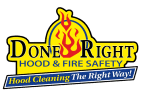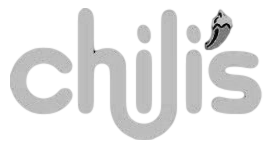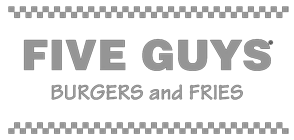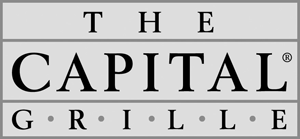Fire Safety for Food Trucks – The Hidden Fire Risks of Mobile Kitchens
Fire safety for food trucks is more than a checkbox, it’s also a lifeline that ensures productivity, profitability and general safety. During the summer months in the greater NYC area, food trucks and pop-up kitchens take over sidewalks, parks, festivals, and open-air markets. And, with the short warm-weather season experienced in the northeast, it inevitably is where the customers will flock. But while business heating up is great for area restaurants, food trucks and other mobile kitchens, it also brings increased fire safety risk.
The reality is, most mobile kitchens operate in tighter quarters, often with untrained or seasonal staff, in makeshift setups that were deliberately not designed for long-term cooking. Propane tanks sit only a few feet from hot grills. Tight quarters means that grease builds up fast – much faster than in a typical commercial kitchen. Electrical systems are often makeshift, and in too many cases, fire suppression equipment is either outdated or (in the worst cases) missing entirely.
Local fire departments, especially the FDNY, have started cracking down much harder during these high-traffic months, not out of bureaucracy, but out of real necessity. Because they can technically be located anywhere, failure to ensure fire safety for food trucks doesn’t merely threaten a single vendor. It can quickly spread to nearby people, property, or vehicles.
What’s worse is that many operators don’t even realize that the codes that apply to restaurants also apply to them. Same rules. Same inspections. Same potential fines. And for mobile kitchen owners who think they’re off the radar, it would be wise to think again. If it’s the summer season, and there’s heat, grease, or flame involved, inspectors are uniquely focused on you.
The good news – avoiding risk and fines is totally doable a much easier than many vendors think. But it starts with knowing exactly what’s required, what inspectors are looking for, and how to fix problems before they get out of hand.
Who Regulates Fire Safety for Food Trucks and Pop-Ups?
As with all commercial kitchens, regulations for mobile kitchens are enforced by city, state, and national authorities, with serious consequences for businesses that don’t follow them. In New York City, that foundationally starts with the FDNY. Similar across Long Island and New Jersey. In Florida, it’s begins with local fire marshals that are backed by statewide fire codes. Every operating region has its own unique authority having jurisdiction (AHJ), and those AHJs all treat food trucks and pop-ups like full-scale restaurants when it comes to fire risk.
FDNY Oversight and Permitting
The FDNY requires mobile food vendors to secure a range of permits, including Certificates of Fitness for propane use and portable fire extinguishers. They also require that operators pass fire safety inspections before being cleared for service. These aren’t one-time checks. Permits need renewal, and re-inspections often happen without much warning.
National Standards Still Apply
“Cooking equipment that produces grease-laden vapors and that might be a source of ignition of grease in the hood, grease removal device, or duct shall be protected by fire-extinguishing equipment.”
Source: –National Fire Protection Association (NFPA 96)
NFPA 96 is the national standard for ventilation and fire protection in commercial cooking, and also applies in the case of fire safety for food trucks. That means mobile kitchens need to meet the same basic standards as brick-and-mortar kitchens.
Temporary Kitchens Face the Same Scrutiny
Temporary kitchens and pop-ups (think festival or park setups) fall under similar scrutiny. Health departments and fire departments often inspect these sites together, especially when the setup includes tents, trailers, or mobile cooking equipment. If there’s cooking, there’s code. The recent fire that spread throughout Bryant Park is an unfortunate example of the risks associated with popup kitchens, and a key reason they gain such compliance scrutiny.
Compliance with FDNY food cart permits and local equivalents isn’t just a matter of paperwork. It’s about meeting the baseline for keeping people safe, and regulators treat it that way every time they show up.
Core Fire Safety Requirements for Mobile Kitchens
Operating a food truck or pop-up kitchen comes with serious fire safety obligations. Compact workspaces and volatile conditions make fire risk a constant concern. Regulations reflect that reality. Meeting code isn’t just good practice — it’s required to stay in business.
Required Fire Suppression Systems
Any mobile kitchen that uses grease-producing appliances must have an approved fire suppression system. That typically means a UL 300 wet chemical system, installed and maintained by a licensed provider. Fire suppression systems must be inspected regularly and kept in full working order.
Propane, Electrical, and Open Flame Rules
Propane cylinders must be mounted securely outside of the vehicle and kept at safe distances from open flames. Electrical systems should be professionally wired, not pieced together from extension cords or temporary hookups. Open flames are often restricted or must follow strict clearance rules, depending on the municipality.
Ventilation and Hood Requirements
Just like in permanent kitchens, mobile operations that produce grease-laden vapors must have mechanical hoods with grease filters and proper ducting. These systems must be cleaned regularly to prevent buildup and maintain airflow. Hood and exhaust cleaning is often required by code.
Portable Fire Extinguishers
“Fire extinguishers are essential for preventing and controlling fires in food trucks and are required for safety compliance. Regular inspection and maintenance are crucial to keeping extinguishers in optimal working conditions.”
Source: National Extinguisher Service
At least one Class K fire extinguisher must be present in any mobile kitchen with a fryer or similar appliance. Additional ABC extinguishers may be required depending on fuel sources and equipment. All extinguishers must be mounted, tagged, and easily accessible. Fire extinguisher compliance is a frequent inspection issue.
These aren’t optional safeguards. Fire marshals expect to see every one of these elements in place — and functioning properly.
Fire Suppression Systems for Mobile Setups
Fire safety for food trucks isn’t one-size-fits-all. Mobile kitchens have unique layouts, ventilation challenges, and equipment mixes that require tailored protection. The core requirement is simple: if grease is in use, suppression is non-negotiable.
What Triggers the Requirement?
Any mobile food unit using fryers, griddles, or ranges that generate grease-laden vapors is required to install an automatic fire suppression system. Most jurisdictions reference UL 300 as the standard, meaning wet chemical systems that can suppress grease fires effectively.
These systems are designed to detect heat or flame and automatically discharge a chemical agent over the cooking surface, cutting off fuel and suppressing the fire. They also shut down the gas or electric supply to prevent re-ignition.
Inspection and Certification Cycles
Fire suppression systems in mobile kitchens must be inspected semi-annually by licensed technicians. A valid inspection tag must be visible on the system at all times. These inspections check for nozzle obstructions, tank pressure, manual pull operation, and clean lines.
Without up-to-date inspection records, operators can face immediate shutdowns or fines during surprise visits by fire marshals. Fire suppression system inspections are one of the most common pain points for mobile vendors.
What Inspectors Look For
Authorities will verify that the system is UL 300 compliant, properly charged, has unobstructed nozzles, and covers all required cooking equipment. They will also confirm that the manual pull station is labeled and easily accessible.
When it comes to fire safety for food trucks, mobile operators often miss simple things, like not replacing a tamper seal or failing to update an expired inspection tag. These minor oversights can trigger costly violations.
Every fire suppression system in a mobile setup must do one thing above all: work when it’s needed. If it doesn’t, it won’t just result in a citation. It could be the difference between a contained incident and a full-blown emergency.
Temporary Kitchens & Pop-Ups: Different Space, Same Rules
Pop-up kitchens and seasonal setups might seem temporary, but the fire code treats them like any other commercial cooking operation. Whether it’s a tent at a street fair or a makeshift kitchen behind a beer garden, the same standards apply.
When Fire Code Applies
Any time cooking equipment is used to prepare food on-site, fire safety codes are triggered. That includes propane grills, fryers, electric ranges, and even some warming stations. Operators often underestimate this, especially when the setup is short-term or offsite from a main kitchen.
Tents and mobile trailers may also be subject to additional fire department requirements related to clearances, exits, and flame-retardant materials. Temporary kitchen fire code enforcement tends to ramp up during peak summer events, when fire marshals conduct walk-throughs at outdoor festivals and seasonal venues.
The Most Common Oversights
Fire safety for food trucks starts here. Missing fire extinguishers, non-compliant fuel storage, and lack of suppression systems top the list of issues inspectors cite. Another major one: improper or unsecured propane tanks. Even for single-day events, these setups are expected to meet code.
One of the easiest ways to stay in compliance is to work from a checklist before opening for service. Verifying extinguisher placement, testing suppression systems, and double-checking electrical sources can help avoid same-day shutdowns.
“In New York City, fire and life safety is all about being #FDNYSmart! It means being prepared for, and preventing, fires and other emergencies.”
Source: FDNY Fire & Life Safety Education, NYC.gov
Temporary setups might disappear after a weekend, but the risk they pose doesn’t. Fire officials respond to these locations with the same urgency and expectation as they would a permanent kitchen.
Common Violations and How to Avoid Them
Fire code violations are common in mobile kitchens, especially during the summer when operations scale up and staff turnover increases. Many violations stem from overlooked basics — not system failures. Avoiding them comes down to knowing what inspectors look for and making sure your setup passes that quick scan.
Top Issues Fire Marshals Flag
- Expired inspection tags on fire suppression systems
- Improper extinguisher type or missing Class K extinguisher
- Unsecured propane tanks or tanks stored too close to heat sources
- Blocked or mislabeled manual pull stations
- Grease buildup in hoods, ducts, or filters
Each of these violations can trigger fines or forced shutdowns. They also suggest to inspectors that the operation isn’t taking safety seriously — which can lead to deeper scrutiny.
Simple Fixes That Prevent Costly Delays
- Schedule regular fire suppression inspections and keep tags updated
- Use a pre-service checklist to verify extinguisher types and placement
- Secure propane tanks using approved mounting brackets and distance guidelines
- Clean hoods and filters routinely to meet hood and exhaust cleaning standards
- Label and test manual pull stations to ensure clear access
Fire marshals don’t expect perfection. But they do expect awareness, effort, and compliance with the basics. Most citations can be avoided with consistent checks and updated documentation. And when violations do happen, fixing them quickly can be the difference between reopening tomorrow — or sitting out the weekend.
Appropriate Fire Safety for Food Trucks Means More Summer Sales
For mobile food vendors, fire safety is about about avoiding fines yes…but it’s also about protecting staff, customers, equipment, and business continuity. When kitchens run safely and inspections go smoothly, it means fewer interruptions and more time focused on service.
Summer is peak season. It’s when the most customers are lining up, and when fire marshals are most likely to show up. That’s not a coincidence. Temporary setups, fuel systems, and hot weather combine to create a perfect storm of risk.
The good news is that the requirements are clear. With proper suppression systems, up-to-date inspections, and consistent maintenance, most violations are easy to avoid. Operators who take the time to get it right stay open longer and build reputations as reliable, professional, and prepared.
Fire safety for food trucks isn’t a side task. It’s a foundation. And when it’s Done Right, it creates room to grow.
Fire Safety for Food Trucks Frequently Asked Questions
Q: What fire suppression system is required for food trucks?
A: Most jurisdictions require a UL 300-compliant wet chemical fire suppression system for any food truck using grease-producing appliances.
Q: Do food trucks need a fire extinguisher?
A: Yes. At least one Class K fire extinguisher is required in food trucks with fryers or similar equipment. Additional ABC extinguishers may also be needed.
Q: How often do mobile kitchen fire suppression systems need inspection?
A: Fire suppression systems must be inspected by a licensed technician at least every six months. Tags must be current and clearly visible.
Q: Does the FDNY require permits for food trucks?
A: Yes. The FDNY requires food trucks to obtain permits and Certificates of Fitness, and to pass inspections before operating in NYC.
Q: Do pop-up kitchens have to follow the same fire safety rules as food trucks?
A: Yes. Temporary setups are subject to the same fire code if cooking equipment is used. This includes suppression systems, extinguishers, and fuel safety.
Additional Resources
NFPA 96 – Standard for Ventilation Control and Fire Protection of Commercial Cooking Operations
https://www.nfpa.org/codes-and-standards/all-codes-and-standards/list-of-codes-and-standards/detail?code=96
FDNY Fire and Life Safety Education Resources
https://www.nyc.gov/site/fdny/education/fire-and-life-safety/fire-life-safety.page
U.S. Fire Administration – Mobile Food Vendor Fire Safety Guide
https://www.usfa.fema.gov/downloads/pdf/publications/mobile_food_vendor_fire_safety.pdf
















